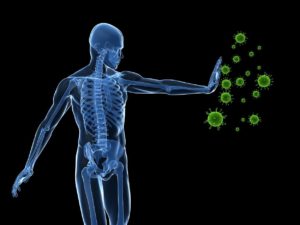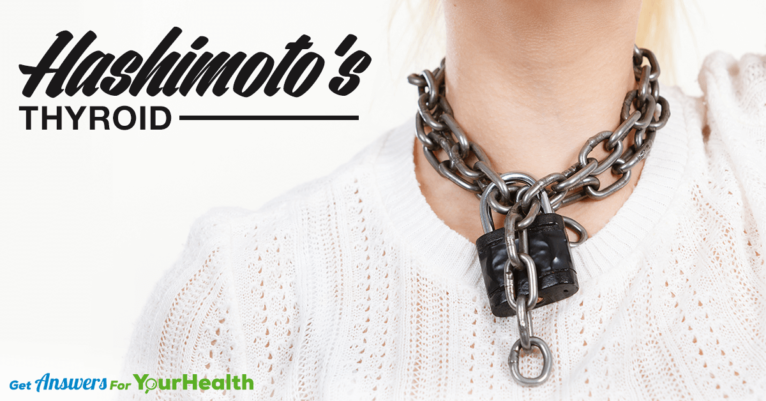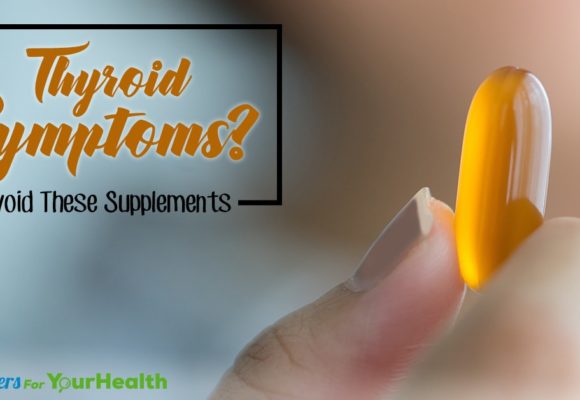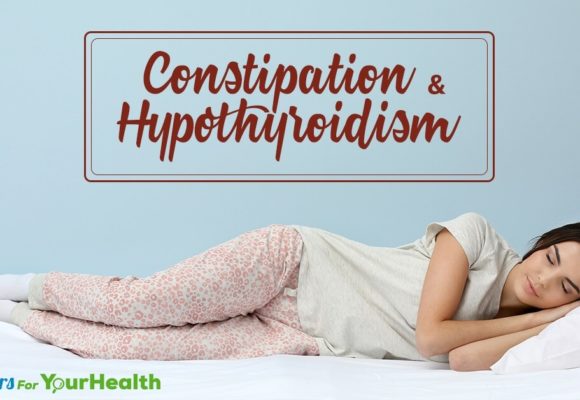1) Grab a FREE copy (Value $14.95) of one of my books Thyroid Symptom Overload
Just pay shipping $7.95 for any US orders. Or, if you want to pay full price plus shipping, order from Amazon :)
2) Take our Thyroid Quiz today and find out what "Thyroid Type" you have
This quiz will help you quickly discover where your symptoms are stemming from.
3) Join Our Thyroid Advocate Membership Site - Natural Thyroid Academy
FREE for a limited time. No credit card required.
4) Work with me and my team privately
Schedule your FREE 15 minute phone consultation and we can find out the best way to help you specifically.
Have you ever wondered how many microbes are there in your surroundings? There are millions of them on your skin that can’t be seen with your naked eye, trying to enter your bodies! Some pathogens succeed in entering the body, but when you have a healthy immune system, it will fight them off and destroy them.
What’s the Immune System?
 The immune system is a network of cells, tissues and organs that work together to defend the body against attacks by “foreign” invaders. Any toxin or foreign substance that gains access to the body is known as antigen that triggers an immune response in the body. Our immune system recognizes these antigens and produces antibodies in response to it.
The immune system is a network of cells, tissues and organs that work together to defend the body against attacks by “foreign” invaders. Any toxin or foreign substance that gains access to the body is known as antigen that triggers an immune response in the body. Our immune system recognizes these antigens and produces antibodies in response to it.
Antigen antibody complex is formed and the harmful substance is destroyed. The other method to eliminate the foreign destructive substance is by infiltration of cytotoxic T cells summoned by T-Helper cells. This causes macrophages (your immune system “army”) to recruit at the site and destroy the injurious substance. Whatever the mechanism is, the consequence is the chronic inflammatory injury to the tissue that gets attacked.
Hashimoto’s Thyroiditis; An Autoimmune Disease:
Hashimoto’s thyroid is also known as chronic lymphocytic thyroiditis. It is the most common cause of hypothyroidism in areas of the world where iodine deficiency is not prevalent. It is characterized by gradual thyroid failure, secondary to autoimmune destruction of the thyroid gland.
So basically, Hashimoto’s disease is “a fault in our immune system”. The disease starts when our body starts to make autoantigens. The breakdown in self-tolerance leads to the production of autoantibodies against thyroid antigens. Two types of antibodies are produced namely antithyroglobulin (TBG) antibodies and antithyroid peroxidase antibodies (TPO).
Both thyroglobulin and thyroid peroxidase are important for the formation of thyroid hormones. Because of these antibodies that cause antibody dependent cell mediated cytotoxicity, thyroid hormone synthesis is greatly reduced.
How T-Helper Cells Cause Thyrocyte Injury:
T-Helper cells play an important role in the immune system, particularly in the adaptive immune system. These cells help suppress or regulate immune responses. There are two subsets of T helper cells i. e. TH1 and TH2 cells. TH1 cells are basically proinflammatory, while TH2 cells are anti-inflammatory.
A fine balance is needed to be maintained between these two cells to avoid drift in any one direction. In Hashimoto’s disease, breakdown in self-tolerance leads to the production of TH1 cells. The production of inflammatory cytokines causes recruitment and activation of macrophages (white blood cells). The infiltration of cytotoxic T cells causes destruction of thyroid cells and damage to follicles.
What Triggers the Production of Auto-antigens?
- Genetics: Astrong genetic susceptibility to the disease has been confirmed predominantly by family and twin studies. Genes for human leukocyte antigen and cytotoxic lymphocyte antigen-4 are two of the genes of the utmost importance.
- Environment influence: Environmental factors like drugs, infections, chemicals and iodine intake have positive association with autoantigenicity.
- Gender: Hashimoto’s thyroiditis is more common in women than in men, with female predominance in a ratio 10:1 to 20:1 (Robbins p 724). The gender dependence is due to the hormonal relationship.
- Other autoimmune condition: The risk of having Hashimoto’s disease greatly increasesif the person has any other autoimmune disease. Conversely, a person having Hashimoto’s disease is prone to having other autoimmune diseases.
Clinical Manifestation:
Hashimoto’s thyroiditis can cause an enlargement of thyroid known as goiter. The enlargement of the gland is usually symmetric and diffuse. In some cases, it may be sufficiently localized to raise suspicion for neoplasm (cancer).
In the usual clinical course, hypothyroidism develops gradually. The common symptoms associated with it are weight gain, depression, low energy, poor sleep, hair loss, constipation, cold intolerance and tiredness. However, in some cases it may be preceded by transient thyrotoxicosis caused by disruption of thyroid follicles, with secondary release of thyroid hormones (hashitoxicosis).
Diagnosis:
The diagnosis is based on the signs and symptoms mentioned earlier and is confirmed based on following laboratory tests ordered by your primary medical doctor, endocrinologist, or OB/GYN
- Serum TSH levels: TSH (Thyroid Stimulating Hormone) levels are mostly elevated in hypothyroidism caused by Hashimoto’s disease or by any other cause.
- Thyroid hormone levels: low free T4 levels in the presence of an elevated TSH level confirms diagnosis of primary hypothyroidism
- Thyroid autoantibodies: anti-TPO antibodies and anti-TG antibodies confirms the diagnosis of hypothyroidism caused by Hashimoto’s disease. However, 10-15% of patients with Hashimoto’s disease don’t show antibodies.
Can Hashimoto’s Thyroiditis Cause Cancer?
The relationship between Hashimoto’s disease and thyroid epithelial cancers remains controversial. Some morphological and molecular studies suggesting a predisposition to papillary carcinomas. Furthermore, the disease often has other autoimmune diseases and an increased risk for the development of B cell non-Hodgkin lymphomas (Robbins p 725).
Effect on Pregnancy:

Hashimoto’s disease has adverse consequences on pregnancy. It has strong affiliation with miscarriages. British medical journal research in a 2011 study assessed the association between thyroid autoantibodies and miscarriage. They found thyroid antibodies increased the risk of miscarriage by 290%. However, in the continued pregnancy, fetus development of brain is impeded and neurological deficits occur. So, identify the root cause of the disease and try to manage it. Also, ensure thyroid testing by your doctor throughout pregnancy.
Treatment of Hashimoto’s Disease and Symptoms:
Hashimoto’s disease is a combination of two diseases. One is autoimmunity, and the other is the consequence of autoimmunity that is hypothyroidism. The drug of choice to treat hypothyroidism is orally administered, Levothyroxine sodium. This is also known as Synthroid. Many people are prescribed these for life by their primary medical doctor.
As most of disease symptoms are associated with hypothyroidism, autoimmunity is most of the times over looked. Treating the symptoms of hypothyroidism alone is usually not sufficient to for someone to feel better. The root cause or triggers need to be identified, and most importantly resolved. That shows how important it is to address the autoimmune issue. Otherwise, the symptoms will persist.
Conclusion:
Hashimoto’s thyroiditis is an autoimmune disease caused by the production of autoantibodies. The thyroid gland self-destructs itself leading to hypothyroidism. There’s an array of symptoms associated with the disease. Treating the symptoms is the usual practice but the root cause needs to be eliminated in order to manage the symtoms.








